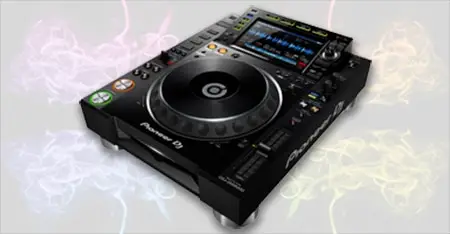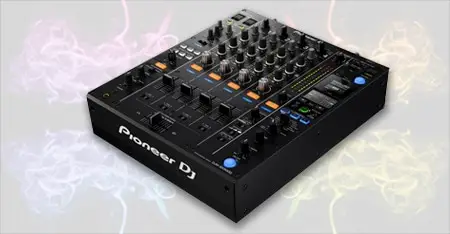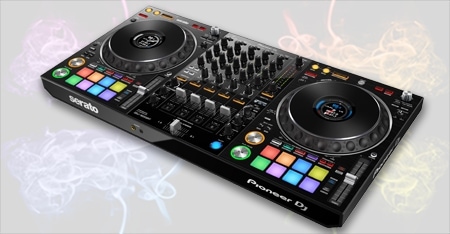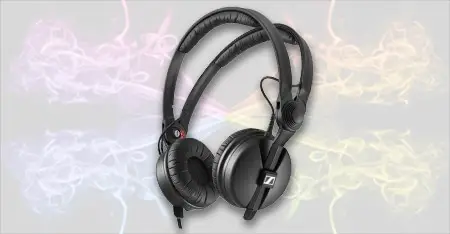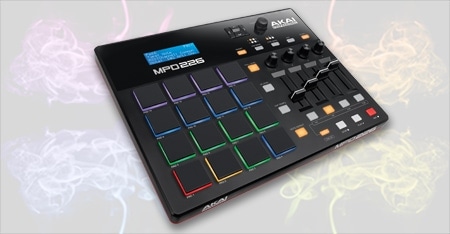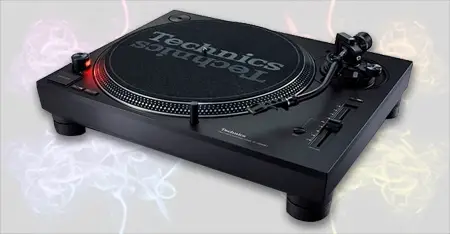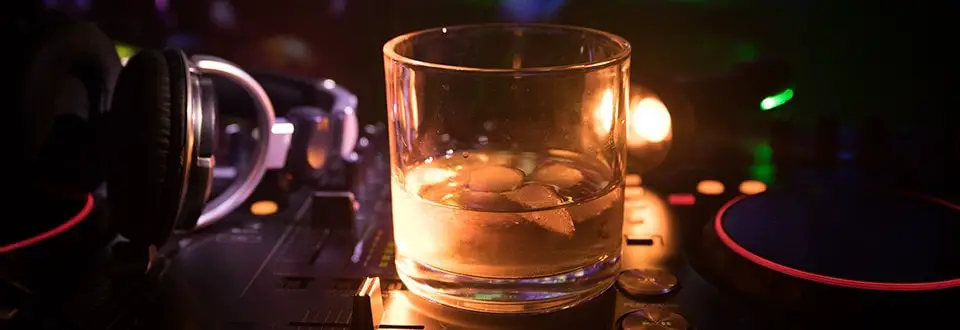
While it would be nice to jump straight to DJing superclubs and massive festivals. The reality is that most of us DJs have to work our way up. The first step on that ladder is usually DJing in bars, but that doesn’t make them a bad thing, however. They can be a huge amount of fun, and great practice, in their own right. There are endless tips for DJing a bar so in this article I’ll run over just the most important.
You May Need to Take Your Own Equipment
Contents
Not all bars you play will have a permanent DJ setup, therefore, you may sometimes have to take your own equipment. While it can be a bit of a pain, essentially you should see it as paid practice.
This is becuase you will become ever more proficient with your setup. And you are able to try different things out in a bar, like new mixing tricks that you wouldn’t risk in a club setting.
And you can actually use this to your advantage i.e when you are approaching bars to get gigs.
Don’t avoid speaking to the manager of a bar just because they don’t have a permanent DJ setup. Some of my regular gigs, that were easy yet well paid, came from places that didn’t usually have a DJ.
See it as a Place to Try Things Out
One of the great things about bar gigs is that you tend to play an extended set, often 4 or more hours.
This is in contrast to a club where you’ll usually only play an hour or two. This gives you a lot of scope to try new things, such as mixing tricks or new tracks.
The simple fact is, there’s a lot less pressure when playing bar gigs. Giving more room for you to experiment.
Keep the Staff Happy (& You’re More Likely to Be Asked Back)

We’ll cover this topic in general terms several times throughout the article but keeping the staff happy is one of the ways to secure yourself a regular gig. So be friendly and even make a point of asking what type of music individual staff likes.
This allows you, at some points throughout the set, to drop tracks that you know is going to go down well with individual people. The primary reason for doing this, aside from helping them enjoy their shift, is that the manager will often ask their staff what they thought of the DJ. So if you’ve kept the staff happy, you’re going to get a glowing report and be asked back.
Often times, the main manager may not even be there during your set, particularly if you are playing midweek.
In this case, it is extra important to satisfy the staff because they will 100% be reporting back.
Have LOTS of Music

As mentioned above you often play for a good few hours when DJing above. So one of the essential tips for DJing a bar is to have a huge and varied library. This means that you are able to take your set in any direction, based on what you see the bar’s customers enjoying.
After all, if you only have a library exclusively of Funky House, yet you don’t see anyone tapping their feet, then you will be stuck for a direction to take your set. Therefore, having a large library can not only help you please the crowd but also give you options depending on your mood as well.
You’ll Need to Read the Crowd in a Different Way

How you read the crowd when DJing in a bar is different from how you would do it usually. In a club, you are able to see the dance floor and see what types of tracks are getting the biggest reaction and movement from the dance floor.
In a bar, however, there might not even be a dance floor.
Instead, you will need to look for more subtle indications of appreciation from those listening. Look out for people nodding their heads, tapping their feet or for smiles and nods of appreciation.
When you do this it will not be uncommon to have a stream of people thanking and complimenting you on the music as they leave.
Which leads nicely onto the next point…
Interact With the Crowd
Although there are elements of this when doing a club set, the DJ booth is often inaccessible to the public. However, when DJing in a bar you will often just be set up on tables, or at least on the same level as your audience. This means you are able to interact and even converse directly with people.
Use this to your advantage by acknowledging those looking your direction and even bantering and talking with those close enough. Doing small things like this can help people to enjoy their evening and ensure you get positive feedback. Not only from the staff but from the customers as well.
Another aspect of being accessible will, of course, be requests. Which are often seen as the bane of a DJ’s existence, however…
Be Prepared to Have Requests
 Because it is so easy for people to speak to the DJ you will probably receive more requests than the average club set. But this doesn’t need to be a bad thing and there can actually be a few advantages here:
Because it is so easy for people to speak to the DJ you will probably receive more requests than the average club set. But this doesn’t need to be a bad thing and there can actually be a few advantages here:
- If you can fulfill the request then play the track. That way you are ensuring that the person has a great time, you might even make the night for them.
- If it’s a track you’re unfamiliar with then get in the habit of taking note and looking up that track. Either during your set or for next time. This can actually be a great way of finding new music that you may not otherwise have come across.
- Taking requests, particularly when it’s a good one, is a good way to engage someone in conversation.
And you actually might never know who the person making the request is. They may work at a different venue, for example, so it could result in another booking. Or they may, in some way, be connected to the bar’s manager and pass along their opinion of you.
But What If the Request Is Shit?
Every DJ has had this. I remember DJing a bar and playing liquid drum & bass. A girl came up and requested some Pussycat Dolls. Obviously this was not in line with the music I was playing, nor did I have any in my library.
However, a good method to deal with these rather than giving an outright “no” is to politely decline with a “Sorry I don’t have that. Is there anything else I can play for you?”. This helps the person not feel rejected and risk them thinking “the DJ is shit” (even though it’s more likely their music taste that’s shit).
Often, if you can go general enough with the music they enjoy you can find a decent remix that keeps both the punter happy and your integrity intact.
Enjoy the Relaxed Vibe

One of my top tips for DJing a bar is to enjoy the fact that they are more relaxed than club shows. There is far less emphasis on keeping a steady flow (i.e beat matching) and slamming in banger after banger. Therefore it can be a lot more forgiving of your mixing style.
What I mean by this is that you can simply blend tracks and switch between genres or styles as often as you like. The only thing you really have to bear in mind is maintaining a flow of energy.For example, don’t be jumping from Chill Out to banging EDM to Rock.
While it is okay to switch between those genres, just make sure that the tracks you are playing still maintain a similar energy level.
By embracing the more relaxed style of DJing at a bar you can be more freeform in selecting your tracks. This helps you create interesting, meandering sets that you would otherwise never do in a club setting.
Treat it as Paid Practice
In line with the above, remember that no gig is wasted. Even if you don’t end up with a huge crowd or manic dancefloor.
Any time spent on the decks (see our recommended decks here) is time spent learning and improving. And because bar sets tend to be longer, often 4+ hours, then it’s probably longer than you would otherwise have spent practicing at home that day.
It’s a Great Networking Opportunity aka Making Friends
DJing at a bar tends to be way more social than DJing in a club. When you have a regular gig not only will you become friendly with the bar staff but probably also the bar’s regulars. If you engage and are friendly (and remember people’s names) then you’ll have an ever-increasing circle of friends. Usually, with people you may not have encountered otherwise.
And then there is the actual networking opportunity…
As part of your regular gig, you can invite guest DJs to come and do a slot. This gives you a perfect excuse to reach out to DJs you don’t know personally but would like to. As a bonus, due to the relaxed social atmosphere, you will also have a chance to get to know them. And again, become friends.
When it comes to DJing, the more friends you have in the industry then the more successful you can be. DJs you give invites to will be more inclined to return the favor or even recommend you for bookings that they themselves can’t fulfill.
Don’t Get Drunk

I cannot emphasize this enough. When DJing it is all too easy to get caught up in the atmosphere and that everyone else is there to get drunk. Remember that you are still there to do a job, and should behave professionally.
Therefore, I would recommend that while it is perfectly acceptable to have a couple of drinks, never get visibly drunk. Otherwise, you give the staff the impression that you are perhaps not as professional as they thought.
And professionalism counts.
If a manager is deciding to book one of two DJs, and the only difference is whether one gets drunk or not, they will likely go with the one that doesn’t. For the simple fact, they would deem that person to be more reliable.
While the free drinks might make getting drunk attractive, it can actually come back and bite you in the ass.
Leverage Your Drink Tokens

Further to the above. You might actually find the bar may give you drink tokens as part of your deal. Don’t see these as a challenge to use every single one, and instead use them as leverage with your crowd.
For example, you could save them up to offer as some kind of prize, or better yet, use them to your advantage. Ways to do this may include things like giving some tokens to an entire table. As long as every single one of them follows you on social media that is.
Or, if you are also a mobile DJ, why not ask people to leave you a positive review on Google or Facebook? In return for a drinks token or two of course.
The bar should have no problem with you doing this. Given that the drinks token would have been spent either way. Whether by you or a customer.
Love DJ gear?
So do we, check out our favorites…
Don’t Ever Play for Drinks ONLY
Sadly, it is all too common for bars to think that giving a DJ free drinks is somehow an acceptable form of payment. However, it shouldn’t be considered so.
Why? Well just try buying new tunes with a pint of beer and see how that goes…
Remember that you are there to do a job, on that takes time and practice for you to be able to do. Not to mention the cost of building a complete music library.
So, while it may be acceptable to do your first show for free (i.e for drinks). Really from week two onwards, you should be being paid for your time and expertise. Particularly if you are by playing music that encourages people to stay in the venue and buy more drinks.
(If you want to know other ways to earn money as a DJ, check this EPIC post).
As I mentioned above, trying not to pay a DJ is all too common in the industry. Therefore, don’t be part of the problem. Instead, know your worth and demand to be paid.
Which leads me nicely on to my next point…
Know When to Say No
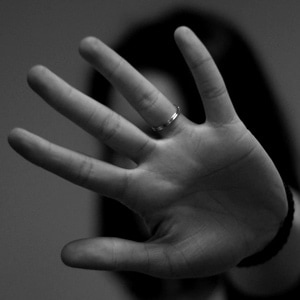
As above, there are unfortunately far too many people happy to try taking advantage of DJs. I know this from personal experience.
I used to do a regular gig on a Wednesday night and I had agreed to do the first couple of shows free. The idea being so I could prove myself, and they went well. However, on one particular Wednesday night, when I was due to start being paid the manager still gave me an excuse. It just so happened to be a night that my friends were going out to a different venue.
So, my options were:
- DJ at the bar and maybe get paid in the future, or,
- Go out and have a great night with my friends.
I chose the latter.
Doing this did a couple of things:
- It showed the manager that DJs aren’t free and can’t be taken advantage.
- It freed up my Wednesday night to find a different venue that was actually willing to pay. Which I did.
So, if you find yourself DJing at a venue that you don’t enjoy or playing music you hate, then way up the benefit of that gig. Even if you are being paid, ditching a gig can actually be an opportunity to get yourself something better.
Getting Noticed… and Why You Don’t Want To
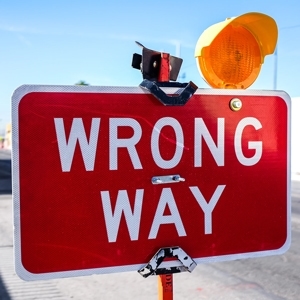
Like I talked about above, DJing a bar tends to be a lot more relaxed. The focus is a lot less on the DJ than it is in a club. However, the one time that is guaranteed to get heads turning towards the DJ booth is when you make a mistake.
Human ears are incredibly good at noticing when something doesn’t sound right. So, although I encourage you to try new things and switch between genres, still be mindful of clanging mixes. As this will get you the wrong type of attention.
Instead, it is much better to do a simple fading blend than it is trying to do an overcomplicated mix that has every potential to go wrong.
I often say that customers in a bar only really notice a DJ when they make mistakes. Just be mindful of that.
Play to the Type of Venue
It can be a good idea before you even start a regular slot at a bar to visit there as a customer. Particularly if you haven’t been there before. This will give you an idea of how an average night there goes.
For example, some bars people will really only be going there to catch up with their friends and will spend the entire night sitting down. In which case, your job is to provide pleasant background music and create a good ambiance.
However, some bars, although they might start tame, will get more lively as the night wears on. Even if there isn’t a specific dance floor, customers will create one anywhere they can find space. This means you are able to zone your set. You can go from creating ambiance throughout most of the evening and then slowly ramp up to a danceable ending.
This, of course, can be affected by several factors, including the day of the week. For example, people are far more inclined to get tipsy and have a dance on say a Friday or Saturday night than they are on a Monday. So also take this into account when you are pacing your set.
The One Time Pre-Recorded Sets Are Acceptable…
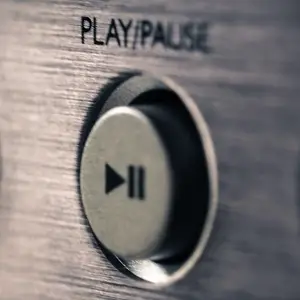
This is again speaking from experience… and learning the hard way. Remember that during a four-hour set, particularly if drinking, then you’re going to need to go to the bathroom. Therefore, it is a good idea to record at least one or two 20 minute mixes that you can put on and leave the decks (see our recommended decks here).
Not only is this good for bathroom breaks but it can also allow you time to chat with customers. Particularly if someone comes to the decks that you hit it off with. By putting on a pre-recorded mix for a few minutes you’re able to have a proper conversation. Rather than trying to rush or making your apologies every three minutes.
As I said, I learned this the hard way. And have had to run to the bathroom and back in the space of a single track. That makes this one of my absolute essential tips to DJing a bar.
Make Sure You Are Getting Paid
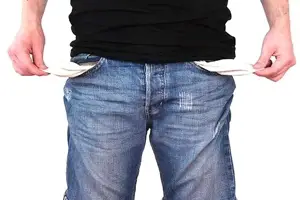
This was mentioned in a tip above but it is essential to recognize that you are doing a job and therefore should be paid for your time. There are a couple of ways to do this:
- A flat fee, in which case, $100-200 a four-hour set is acceptable, preferably 200.
- Some people think that the hourly rate for a DJ is high. It’s worth bearing in mind that it takes a lot of time and preparation away from the decks. So you’re not solely paying for the DJ on the evening. You are also paying for all the hours leading up to that gig. The time spent practicing and finding tracks
- Getting a share of the bar takings. For example, 10%.
- This is common for bars to do as it reinforces that the DJ’s job is to keep people in the venue, buying drinks. Be sure to discuss with the manager beforehand what the conditions around this are. For example, it is not uncommon to set a higher limit to your earnings i.e 10% of takings up to a maximum of $350.
Once again, if you’re looking for ideas on other ways to earn as a DJ, read this post for 17 different ways.
Remember… You Are Part of a Team
Remember that when you are a DJ in a bar, you are a much bigger part of the team than you are when playing in a club. Therefore, be sure to help out your fellow staff members.
This can even be really small things, such as dropping glasses off at the bar as you pass or holding open the door when security is having to evict a drunken idiot. Even at the end of the night, you can pitch in a little bit of extra time to help them clean up.
While this is not necessarily part of your remit it helps you endear you to the staff. It goes a long way to forming friendships and getting you repeat bookings at that venue. So, always remember that you are not the star of the show but instead part of a team.
A good way to quantify this is to consider that, at the end of the night, you are the most disposable member of staff. All other staff at that venue, whether bar or security are required to run that venue for the evening. As a DJ you are not essential to operating that night, desirable yes, but not essential.
Don’t Take Things Personally
One of the things that the DJ has to deal with in bars and clubs is drunk people, and drunk people love to run their mouths. Having that directed at you can be triggered by anything from a rejected request, through to something not related to you. Therefore, anytime an incident happens, remember to remain professional and not take things personally.
Instead, brush any incidents off immediately so that you can continue doing the best possible job that you can. After all, having a strong reaction to something and storming out, for example, often makes little sense the next day. But by that point, it might be too late and you may have lost yourself a regular gig and paycheck.
Instead, remaining calm will again endear you to staff and security. Drunken idiots will always be around so just make sure that you are not one of them.
Mistakes Happen…get Over It

As described further up, customers in bars only tend to notice the DJ when they make a mistake. As much as you can try to minimize the chances, they will still happen. Similar to the above point, simply remain calm and laugh it off. Particularly, if you see people looking in your direction, then you can turn it into a bit of a joke. Throw up a theatrical facepalm, for example.
This makes you a lot more likable to the audience and helps you to not obsess about the mistake. Instead, you can move on to the rest of your set. Knowing that, in all probability, the biggest mistake of the night is already behind you.
People Not Dancing Doesn’t Equal People Not Enjoying
Bear in mind that not every show you do in a bar will get people up and dancing. However, this doesn’t mean that your DJ set has been a failure.
Instead, look for the acknowledgment and make sure you are scanning the crowd and getting some head nods. Those are clear indications that people are enjoying the music you are playing. Not every DJ set is about making people move until their legs fall off.
Sometimes they are about creating an atmosphere with great music so that people can simply enjoy banter with their friends.
Always Be Productive
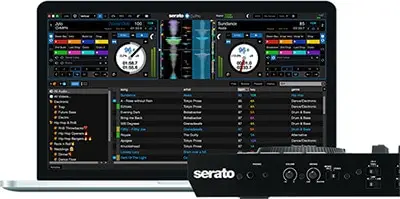
Another of my top tips for DJing a bar is realizing that you can always be productive. In particular, even during quiet or downtimes, there are things you can do to help your set. Both at this bar, and for future gigs.
For example, when things are quiet in the bar, and you’re not needing to interact, then spend time going through, and sorting, your library. Either by cleaning up titles or adding tags that make your library easier to search.
If you would like more tips on how to organize your DJ library, check out this article here.
This is a great way to stay occupied when you may otherwise be staring into space, wondering what you’re doing with your life. Instead, treat it as being paid to organize your library, and be productive. No time needs to be wasted when you’re DJing.
Show up on Time

This is another note about being professional. One of the main things that gets noticed, in any industry, is whether people show up on time or not. And this would be a common question for a bar manager to ask their staff.
Therefore, always, always make sure you show up on time for everything.
In fact, it can even pay to get there a little bit earlier so that you can set up and check any equipment. Or if you don’t need to, then just sit at the bar and get to know some of this stuff. For reasons that have been discussed throughout this article already.
Invoicing Can Be Your Friend
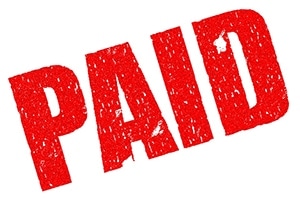
Invoicing the venue can be a great way to ensure you get the agreed rate or that you don’t have to haggle with busy staff at the end of the night. It is actually good practice to invoice a venue by email then also take a printed copy to hand to the manager.
In fact, many DJs even take payment upfront to save having to hassle anyone at the end of the night. Using invoices and tracking payments properly also makes you look more professional and makes tax time far easier.
How to Start Djing at Bars
aka Tips For DJing a Bar & Getting More Gigs
Approach Bars That Don’t Normally Have a DJ
I mentioned briefly above that not all bars will have DJs all of the time. Therefore, a great way to secure yourself an ongoing slot is to actually approach venues that don’t have a regular DJ.
Generally, most places will be happy to accommodate a DJ, even if it’s just on the weekends. For them, it means entertainment, more drink sales, and more revenue. Therefore, it can be worth speaking to all the managers of the bars around you and offering to do your own night there.
Again, you may have to take your own equipment, but as long as they have a sound system installed, then you should be able to simply plugin and start.
Leveling Up
Once you are confident in your skills DJing a bar, then a good way to level up and get more gigs is to look up lists, such as “Best 10 places with a DJ in [your city]”. Then approach them and ask for gigs.
These tend to be the venues that are midway between bar gigs, and clubs. This is because they have built a reputation for being a good venue and they tend to be a bit more dance-friendly.
While they may have a bar vibe at the start of the evening, they ramp up into the dance floor at the end. Playing at these sorts of venues allows you to practice the entire range of DJ skills. From creating atmosphere and playing a varied set at the start of the evening, through to essentially playing a club set towards the end.
Sign up With the DJ Agency
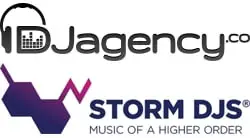
Another way to get DJ gigs, with minimal effort, is to join a DJ agency like Storm DJs or DJAgency that provide entertainment to various venues. To do this you’ll want to ensure that you have a good online presence.
For example, having a website not only shows you are serious but can also highlight your DJ competency. Also, make sure you have mixes available and provide as much info as possible to encourage the DJ agency to sign you.
When you go this route remember that when playing venues, that you are not just representing yourself. But the DJ agency as well and they will be incredibly protective of their reputation.
Meaning that all of the points above about professionalism come into play. Make sure you are always on time, sober, friendly and are always providing the best service you possibly can.
Conclusion Tips for DJing a Bar
By now you’ve probably realized that DJing a bar is not a simple case of turning up and playing a few tracks. While you can do that, the chances are you won’t end up with many repeat bookings or referrals.
Instead, it pays to treat DJing a bar as the job that it is, albeit a fun one. So be professional, keep the staff and customers happy and you will increase drink sales at the bar. Which in turn will prove your worth to the venue. This is why it pays (quite literally) to put time, preparation and thought into your bookings.
Plus, the more professional you are, and politely reinforce that you should be paid, you show venue owners that DJs are an integral part of creating atmosphere. Something that should actually be paid and budgeted for.
If you have any other tips for DJing a bar drop them in the comments below, and I’ll be happy to update the article.

